
Google showcases its smart glasses, leaving us eager for what the future holds.
At a recent TED talk, Google unveiled its innovative XR smartglasses to the public for the first time. While previous glimpses of the smartglasses came through highly polished promotional videos for Project Astra, they did not give a true sense of their real-world features and capabilities. That has now changed, providing a more exciting look into the future, though 'future' is indeed the key term here.
The majority of the 16-minute presentation showcases the capabilities of the smartglasses, introduced by Google’s vice president of augmented and extended reality, Shahram Izadi. He begins with background information about the project, which centers around Android XR, an operating system being developed in collaboration with Samsung. This platform will integrate Google Gemini into XR devices like headsets, smartglasses, and potentially new, unimagined formats.
During the demo, a pair of smartglasses is featured. With a striking design, the frames are sleek black and carry a 'heavy' feel, similar to the Ray-Ban Meta smartglasses. They are equipped with a camera, speaker, and microphone, allowing the AI to perceive and respond to the environment, and they connect to your phone for call functionality. What sets them apart from the Ray-Ban Meta is the inclusion of a small color display integrated into the lenses.
The standout feature of the Android XR smartglasses, as showcased in the presentation, is Gemini’s capability to remember what it has "seen." This includes accurately recalling the title of a book the wearer glanced at and where a hotel keycard was left. This short-term memory serves various purposes—not just as a memory aid but also for confirming details and enhancing time management.
The AI vision is also utilized to clarify diagrams in books and to translate text into various languages. Furthermore, it can provide real-time translation of spoken languages. The display activates when the wearer asks Gemini for directions to a local attraction, with navigation instructions appearing on the lens. Gemini responds promptly to commands, and everything functions smoothly during the live demo.
Following the demonstration of the smartglasses, the presentation showcases Android XR on a full headset. The visual experience mirrors that of Apple's Vision Pro headset, featuring multiple windows in front of the user and pinch gestures for interaction. However, the highlight of the Android XR headset is Gemini's ability to explain and describe what is visible in a conversational style.
At the end of the presentation, Izadi stated, “We’re entering an exciting new phase of the computing revolution. Headsets and glasses are just the beginning. This all points towards a unified vision of a future where helpful AI merges with lightweight XR. XR devices will become progressively more wearable, providing us with immediate access to information. Meanwhile, AI will evolve to be more contextually aware, conversational, and personalized, collaborating with us on our terms and in our language. We’re no longer just augmenting our reality; we’re augmenting our intelligence.”
This is indeed intriguing, and for those who recognized the potential of Google Glass or are currently enjoying Ray-Ban Meta, the smartglasses appear to represent an attractive advancement in the evolution of everyday smart eyewear. Nonetheless, the focus should remain on the future; while the glasses seemed nearly ready for public availability, that may not be the case, as Google continues to tease its smart eyewear.
Izadi did not mention a release date for either XR device during the TED Talk, which raises concerns. When can we realistically expect these products to be available for purchase? The showcased smartglasses are rumored to be part of a continued partnership between Google and Samsung—the headset is also being developed by Samsung—and they are not anticipated to launch until 2026, according to a report from The Korean Economic Daily, which pushes back the potential launch date beyond late 2025 as previously speculated. Though this may seem distant, it is actually sooner than the consumer version of Meta’s Orion smartglasses, which are not expected to arrive until late 2027.
Will it be too late?
Given that the smartglasses introduced at the TED Talk seem to merge features from Glass, Ray-Ban Meta, and smartglasses from Halliday, along with the Google Gemini assistant we currently use on our smartphones and computers, the extended wait is both surprising and frustrating.
Moreover, the influx of AI-infused hardware, coupled with numerous Ray-Ban Meta imitators and alternatives anticipated before the end of 2026, means that Google and Samsung’s venture risks becoming outdated or launching into a disillusioned market. The Android XR headset, known as Project Moohan, is expected to debut in 2025.
Perhaps we are simply being impatient, but witnessing a demonstration of such a seemingly finished and enticing product makes it hard not to desire it sooner than sometime next year.




Other articles
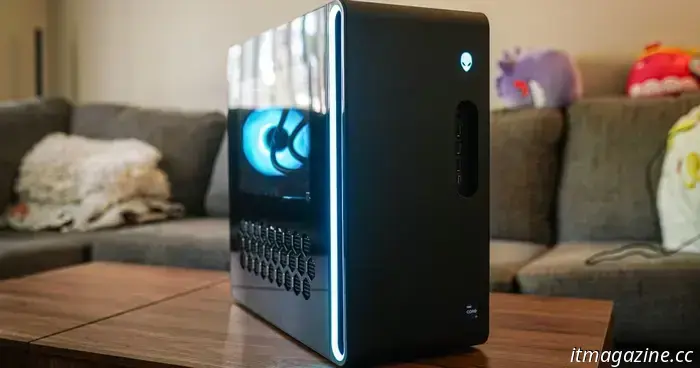 The Alienware Aurora gaming PC featuring the RTX 5070 is currently available at a discounted price.
The robust Alienware Aurora R16 gaming PC, featuring the Nvidia GeForce RTX 5070 graphics card and 32GB of RAM, is available at Dell with a $250 price reduction.
The Alienware Aurora gaming PC featuring the RTX 5070 is currently available at a discounted price.
The robust Alienware Aurora R16 gaming PC, featuring the Nvidia GeForce RTX 5070 graphics card and 32GB of RAM, is available at Dell with a $250 price reduction.
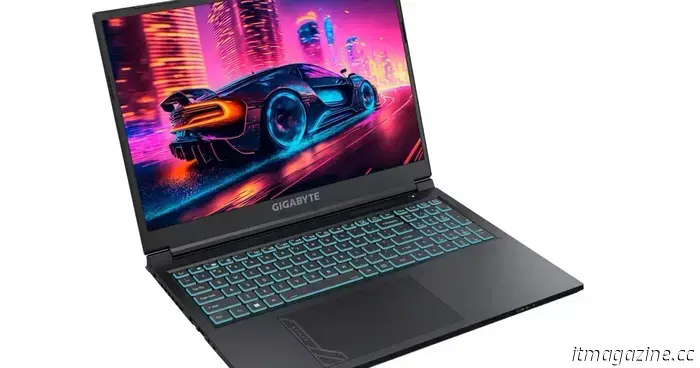 This Gigabyte gaming laptop featuring an RTX 4060 and 32GB of RAM is priced at only $1,000.
The Gigabyte G6 gaming laptop can be purchased from Best Buy for $1,000, a great deal for a machine equipped with the Nvidia GeForce RTX 4060 and 32GB of RAM.
This Gigabyte gaming laptop featuring an RTX 4060 and 32GB of RAM is priced at only $1,000.
The Gigabyte G6 gaming laptop can be purchased from Best Buy for $1,000, a great deal for a machine equipped with the Nvidia GeForce RTX 4060 and 32GB of RAM.
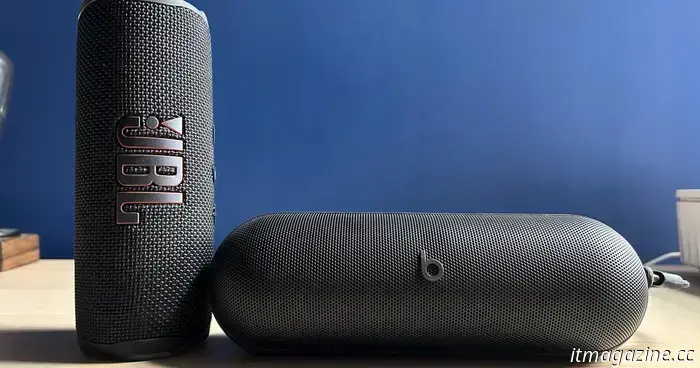 JBL Flip 7 vs. Beats Pill: Which portable speaker suits your needs?
It's a clash between elegant refinement and raw power, resulting in an unexpected result.
JBL Flip 7 vs. Beats Pill: Which portable speaker suits your needs?
It's a clash between elegant refinement and raw power, resulting in an unexpected result.
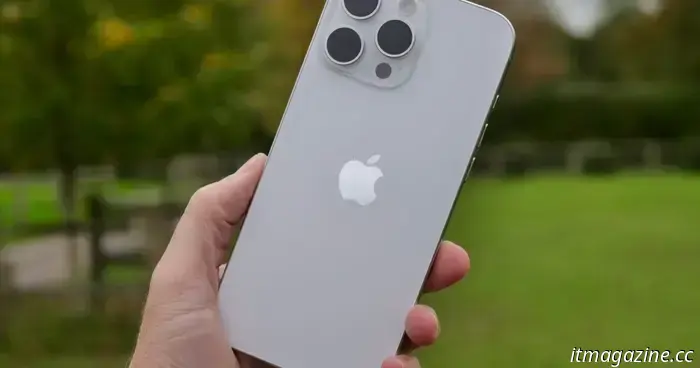 The iPhone 18 might see a price hike, but not for the reasons you might expect.
Apple's upcoming iPhones are expected to utilize TSMC's 2nm process node, which may lead to a significant increase in price.
The iPhone 18 might see a price hike, but not for the reasons you might expect.
Apple's upcoming iPhones are expected to utilize TSMC's 2nm process node, which may lead to a significant increase in price.
 Sunderfolk transforms the strategy game experience by drawing inspiration from Jackbox.
Sunderfolk is transforming the way we experience strategy RPGs, similar to how the Jackbox Party Pack series changed the landscape of party games. Since its announcement last autumn, Sunderfolk's innovative take on this genre has caught my interest. It is a cooperative strategy RPG influenced by tabletop games, but it’s […]
Sunderfolk transforms the strategy game experience by drawing inspiration from Jackbox.
Sunderfolk is transforming the way we experience strategy RPGs, similar to how the Jackbox Party Pack series changed the landscape of party games. Since its announcement last autumn, Sunderfolk's innovative take on this genre has caught my interest. It is a cooperative strategy RPG influenced by tabletop games, but it’s […]
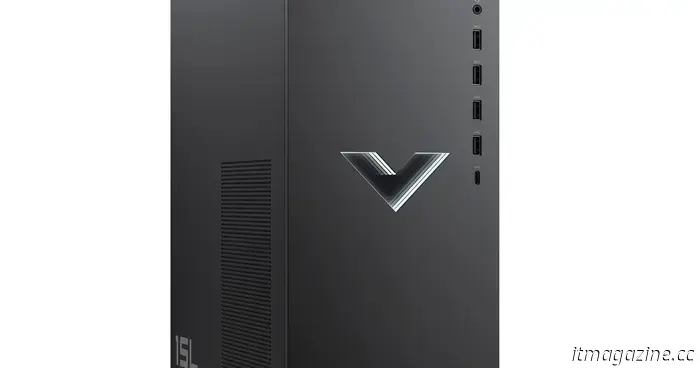 You can get the HP Victus gaming PC with an RTX 4060 for less than $1,000 with this offer.
The HP Victus 15L gaming desktop featuring the Nvidia GeForce RTX 4060 graphics card is currently available at HP for just $850, after a $350 price reduction.
You can get the HP Victus gaming PC with an RTX 4060 for less than $1,000 with this offer.
The HP Victus 15L gaming desktop featuring the Nvidia GeForce RTX 4060 graphics card is currently available at HP for just $850, after a $350 price reduction.
Google showcases its smart glasses, leaving us eager for what the future holds.
Google has showcased its AI smartglasses to the public for the first time, and the future seems to be eagerly awaited.
